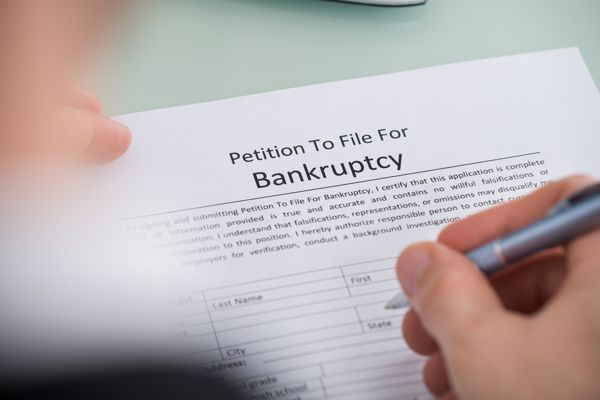Being in debt is not a laughing matter. You can end up losing your assets, some of your properties will be put on hold, or have debt collectors harassing you every day. You may also suffer stress, which in turn can cause you to experience physical symptoms such as weight loss and lack of sleep. That’s why it’s better that you pay off your debts rather than apply for bankruptcy. But if worse comes to worst, and you no longer have an option, you should ask yourself, is filing for bankruptcy an option for you? Here are some of the things that you should think about:

- Do you have other options?
Before making a decision, think carefully and ask yourself if you can still find other means to pay your debts. If you can still fix it without the need to file for bankruptcy, then don’t.
- What type of bankruptcy should you apply for?
Each bankruptcy has their pros and cons, that’s why you have to pick carefully on which you should apply for.
Most common types of bankruptcy:
This bankruptcy will help you discharge most of your debts, and it lasts for four to six months.
This bankruptcy can help you set up a repayment plan, which will let you pay your debts within the span of three to five years.
- Are you eligible to file for bankruptcy?
There are specific requirements that you need to meet to file for bankruptcy, and you can’t apply for bankruptcy if you can’t comply them.
Some requirements for filing for bankruptcy:
- Your income shouldn’t be too high or too low
You need to take the “means test” to determine if you’re qualified to apply.
- You don’t have debts previously discharged by bankruptcy
If you have outstanding debts that have been released by bankruptcy, then you can’t apply for bankruptcy.
- You don’t have a previous bankruptcy case
If you’ve previously applied for bankruptcy within the last 180 days, you won’t be able to apply for bankruptcy.
- Would I be able to pay my other debts?
You need to know that there are debts that filing for bankruptcy won’t cover. Liabilities such as tax debts, alimony and child support aren’t included. So, even if you apply for bankruptcy, you still need money to pay these debts.
- Are you ready to get your private life invaded?
When filing for bankruptcy, you’ll need to show the bankruptcy court every part of your financial life. Any form of dishonesty during a bankruptcy can mean you lose the case and getting investigated by the FBI. Also, if you file for bankruptcy, anyone can find out about it. Lastly, with Chapter 13 bankruptcy, you can only spend your money if the court permits you.
- Are you ready for the tendency of losing your house?
If you can’t pay your debts and you’re not able to pay your mortgage as well, your house might be pulled out to lighten up your obligations.
- Do your co-signers agree with getting stuck with your debt?
You should know that if you have loans that you’ve co-signed with others, they’ll end up paying your debts instead. So, when applying for bankruptcy, you should inform anyone that you’ve cosigned a loan with.
- Are your pension plans safe?
Though, in most cases, your pension plans are protected during a bankruptcy case, you must be ready for the likelihood that it may also get pulled out.
- Can you handle it when your assets get pulled out?
If you’ve used your assets as collateral for your loans, it still may get pulled out by your creditors. You have to get ready for the probability of this happening. If you don’t want your assets to get pulled out by your creditors, then you shouldn’t file for bankruptcy.
- Can you afford to file for bankruptcy?
You should remember that when filing for bankruptcy, you need to hire a lawyer and pay for fees such as filing fees and conversion fees. You may need to prepare at least $1500 to $4000.
Bankruptcy is not your ordinary remedy when you can’t pay your debts. There are a lot of drawbacks when you’re filing for it, but the benefits that you can obtain from filing for bankruptcy outweighs these disadvantages. However, you should think twice before filing for bankruptcy, and as much as you can, try for other ways to solve your debts. Consult a well-versed bankruptcy lawyer so you’ll be guided on how to deal with it. Getting drowned in debt is a difficult situation, but knowing what steps to take, you can avoid financial and emotional sufferings.
 Bella Flanagan
Bella Flanagan
Bella Flanagan has dedicated much of her life to law, and her pieces as a writer are imbued with her wisdom obtained from over 20 years of experience in business. Bella enjoys hanging out with her grandchildren when she has the free time.